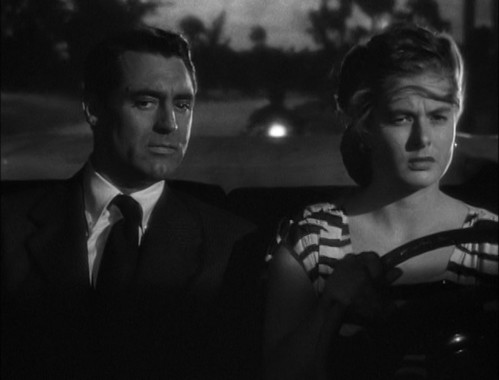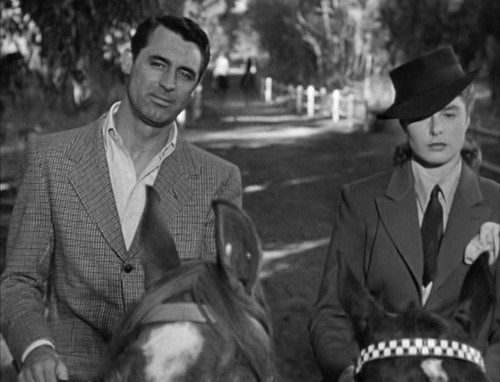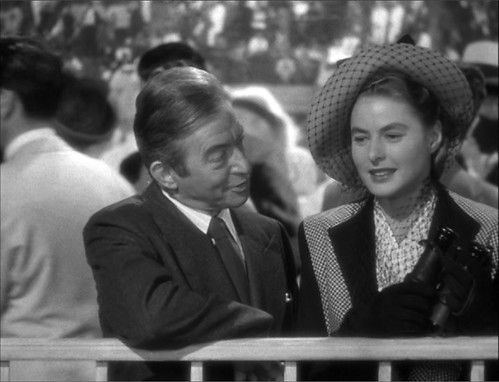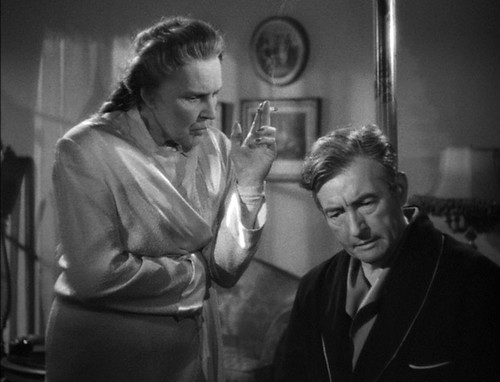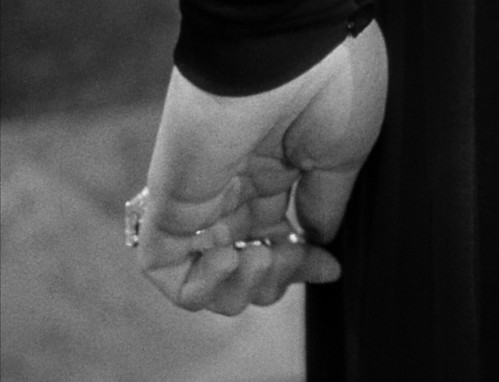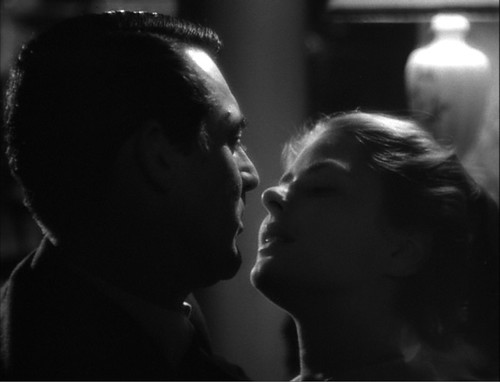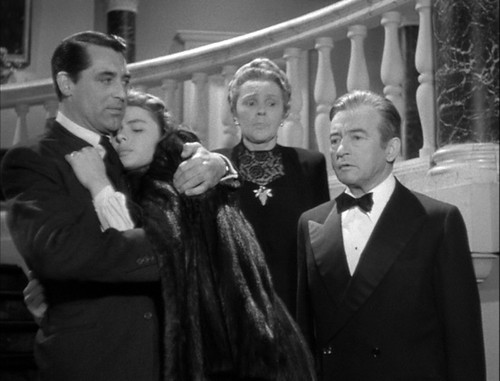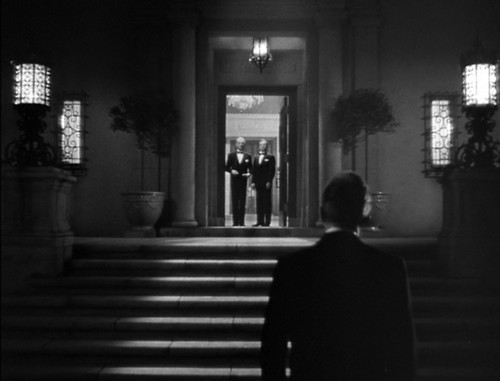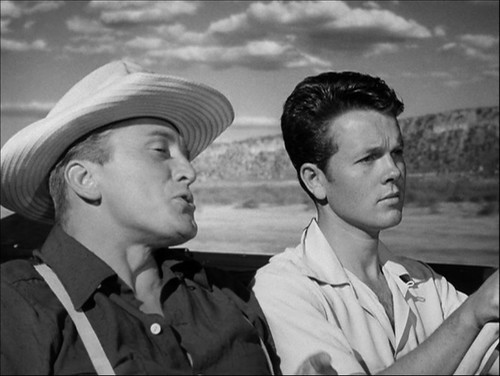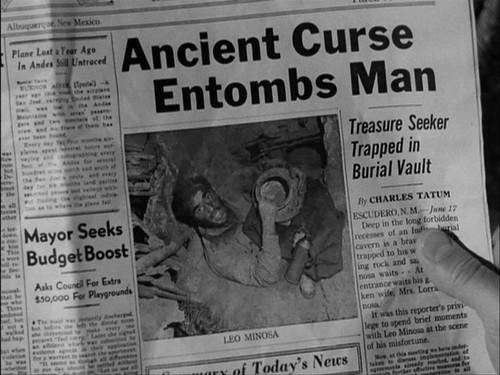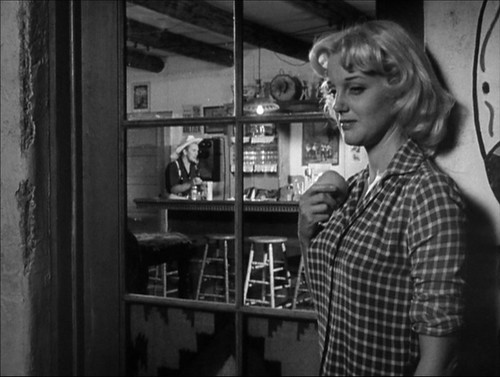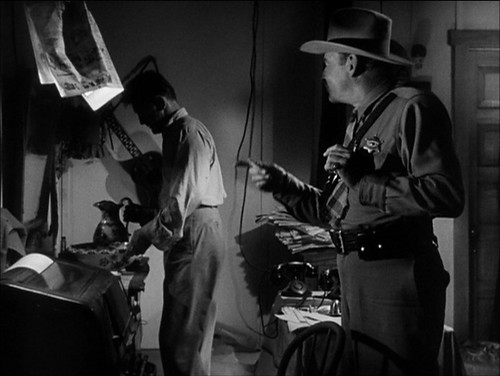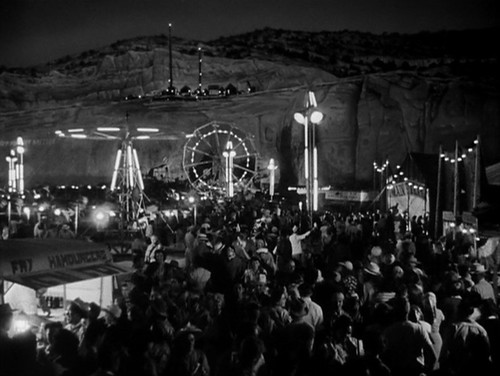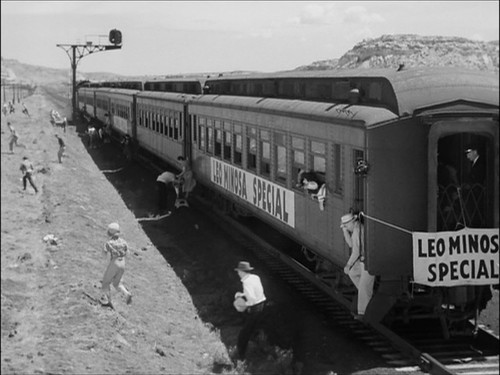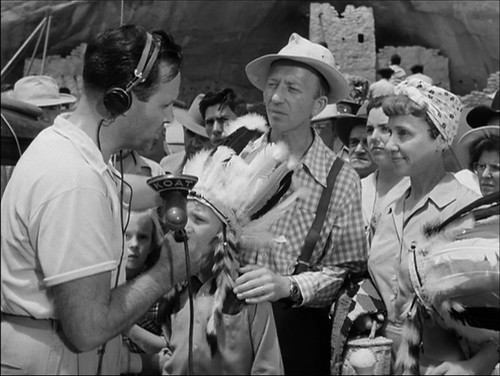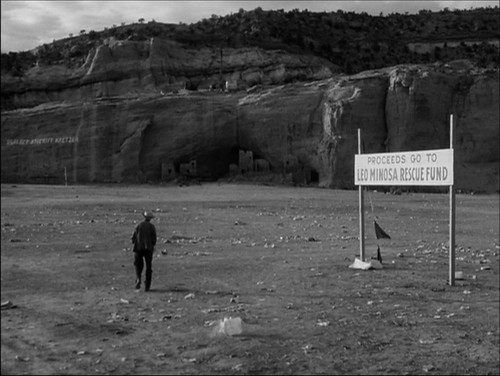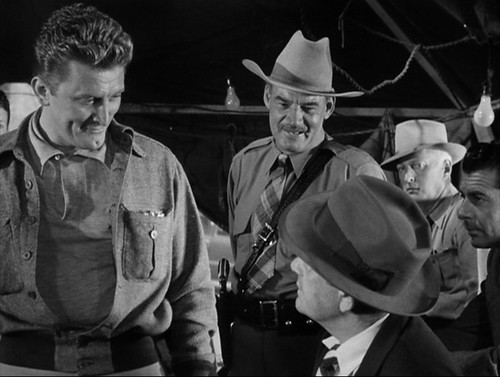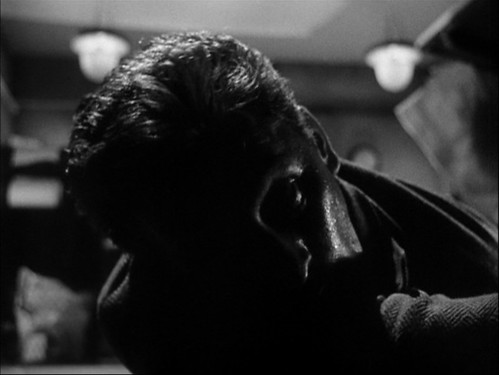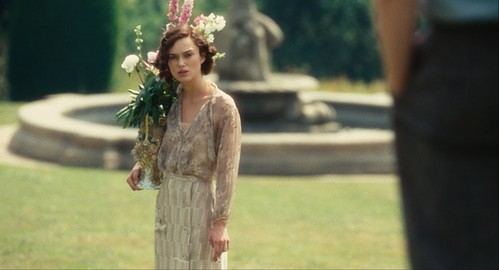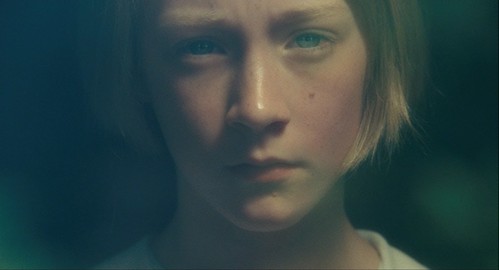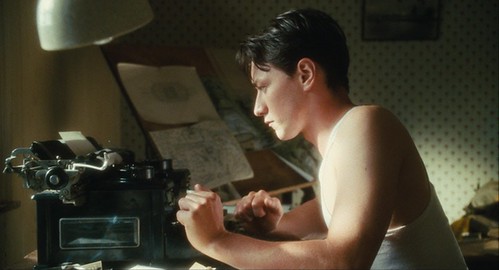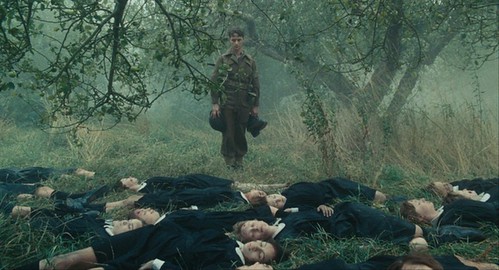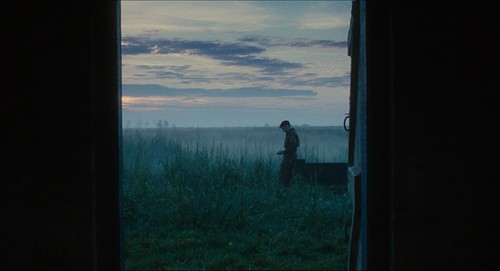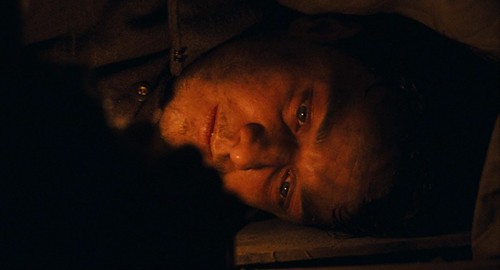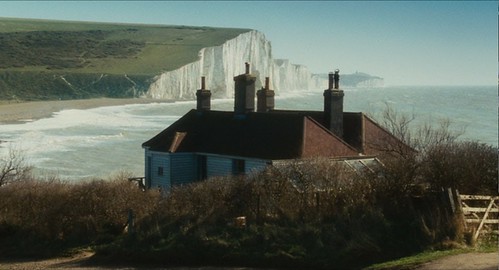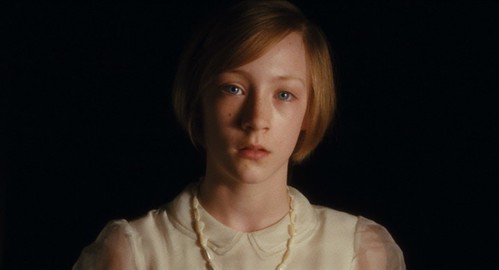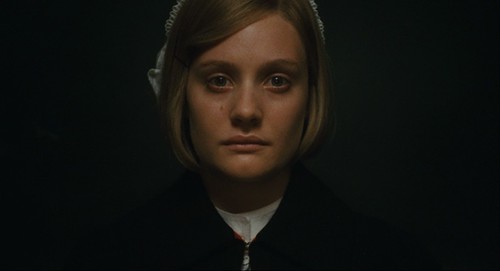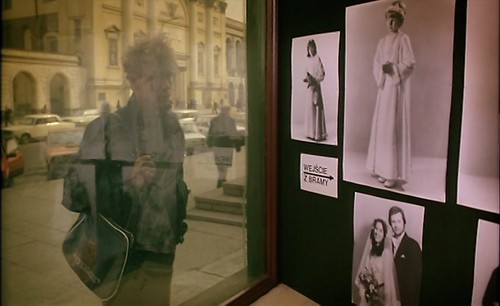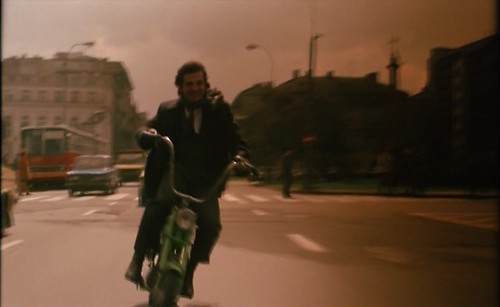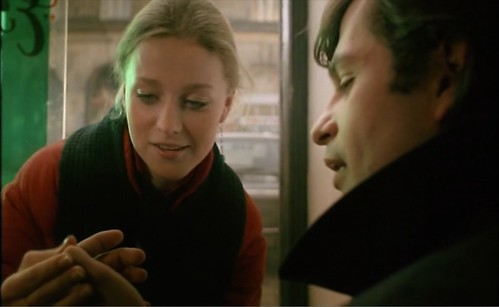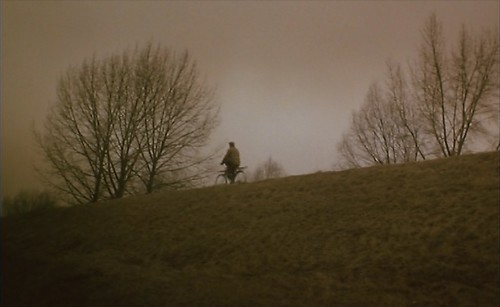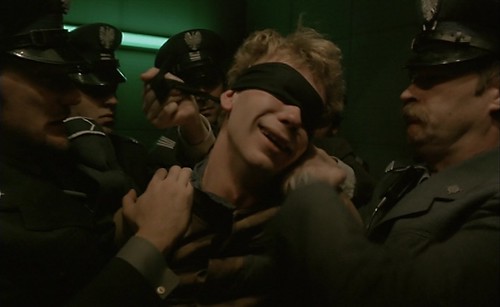Spoilers galore...
Director: Alfred Hitchcock
Screenplay: Ben Hecht
Starring: Ingrid Bergman, Cary Grant, and Claude Rains
Images from a 2002 Korean bootleg (Region-free) of the Criterion Collection release.
Having not seen Alfred Hitchcock's Notorious in almost a year, I had forgotten just how much I loved the picture. Along with Rear Window, Francois Truffaut claimed it as his favorite Hitchcock movie. The film is not my absolute favorite of his, but it's definitely up there, and after refreshing and revising my thoughts, I think it's one of his most fascinating movies. Here, we have Hitch approaching one of his many summits of perfection, and in Notorious, we have the director at his most subtle, manipulative, and controlling. As with Ace in the Hole or Sunset Blvd., Notorious is also a film noir that breaks free from the conventions we normally apply to the genre/style. The acting too, is perhaps among the strongest in any Hitchcock movie.
Notorious tells the story of Alicia Huberman, the daughter of a Nazi spy who is enlisted by Agent Devlin to go undercover and investigate a group of Nazis in Brazil, headed by Alex Sebastian, a former friend who is easily seduced, falls in love with, and then marries Alicia.
From the very first shot of Notorious, we can see that the film is, to some extent, self-aware.
The credit cards and this first shot, which pans around to look at photographers/reporters just outside a courtroom, are framed within another frame. Just like Rear Window, we become aware of Hitchcock's omnipresent control. The reporters can also be seen as an intrusive force, and they, along with the film itself, direct Alicia and Devlin's actions. Notorious, at its most basic level, is a film about a love triangle, and the people pulling the strings (Hitchcock's camera, Madame Sebastian, Devlin, Alicia, and Prescott).
Control: In Love, War, and Patriotism... Exercise subtlety.
Plot-wise, Notorious is like any other romance. The story is simple: An FBI agent falls in love with a Nazi member's daughter. Against his own feelings and for the sake of his country, he pushes her away and into the arms of another man who's in love with her. What distinguishes it from say, Casablanca, is that it is a Hitchcock picture. In Notorious, there is a feeling of entrapment, something that Hitchcock put into his very best movies (Rear Window, Rope, Shadow of a Doubt, Vertigo, Strangers on a Train, etc., etc.).
Hitchcock's movies, by in large, have a police-phobia, perhaps stemming from the well-known, well-told story of his father sending him to a police station to teach him a lesson about law abiding. When we see Alicia driving (drunk) with Devlin, there is of course, a policeman:
More than just Hitchcock's (sub-)conscious phobias expressing themselves, we can also see this as the coming rift between Devlin and Alicia caused by their patriotic duty and sense in upholding of US law. Alicia is also wearing a zebra patterned blouse, suggesting at least two things. On one level, she is a kind of prey to Devlin, as well as his profession. It also symbolizes her promiscuity and primeval nature, and to me, it suggests her as a sort of femme fatale, if we adopt a film noir approach to the film (I'll discuss this later).
Maybe it's just me, but I've never felt like "rooting" for Devlin to get the girl. It's not at all the feeling you get from seeing Casablanca, where you really want Rick and Ilsa to be together. Yes, Devlin does have the guarded stoicism of Rick, but Rick's comes from his wounded past, whereas Devlin's comes from his sense of duty. In Notorious, Devlin acts as a puppeteer, and it is through his actions that he guides Alicia into the hands of Alex Sebastian.
It is in this scene (along with many others) that Devlin orchestrates the action by spurring Alicia's horse and causing Alex to run after her and "Meet Cute." From this shot, you can sense the animosity between the two, expressed by Alicia's hat, which shields her from Devlin.
One thing I noticed about the shooting style is that it's very consistent and precise, and the camera movements suggest feeling and provide atmosphere (duh!). The famous kissing scene is done in one long take. The film does not provide any breaks from the moment and shoots them in a close-up that envelopes the lovers. While also adding a sense of intimacy to the scene, the shot also serves as a snare and an allegory for love and duty. The long take binds them and does not allow for any escape.
In later scenes, we see the animosity between the two grow, and as it does, the shooting style changes. Take, for instance, the scene where Devlin first tells Alicia of her assignment. At first, they are all love-y dove-y, and both are shown kissing in the same cozy close-up. As the details of her assignment are made clear, the two begin drifting apart. Eventually, we don't see them intimately in the same frame and the film begins cutting between individual close-ups. There is a moment in which we see Alicia alone behind the veiled window curtain, deciding her fate to go undercover. The scene ends provocatively with this noir-ish shot:
Devlin's love throughout the film is masked by contempt. He loves her, yet he is irked by her promiscuity and how his boss, Prescott, encourages exploiting it. We will see that he will constantly use her unstable past as a source of fodder in their verbal jousting.
"I guess this is the part where you tell me you have a wife and two kids and this affair cannot continue."
"Well, you'd be used to it by now."
"Right below the belt, every time."
The image places them apart, yet it wisely places them in the same frame. Their romance has been undermined by the assignment while at the same time, they must keep in contact because of it.
The shooting/editing style of first showing them together and then indicating a rift by separating them in shot-reverse-shot is subtle, which I think is in keeping with the whole espionage theme of the film. Emotion is rarely stated overtly or melodramatically. Suspicions are insinuated by simplistic dialogue. I'm amazed at how little music there is too, unlike Hitchcock's many collaborations with Bernard Hermann. In Vertigo or Psycho, the music is such an integral part of the movie that it's impossible to think about them without taking Hermann's contributions into consideration. Notorious, on the other hand, does not use musical cues to emphasize emotion, instead relying on visuals for expression:
This scene is one of my favorites, because in some ways, it is the entire film summed up in a nutshell. We first see Devlin and Alicia together, with her feeding him information right under the nose of Alex Sebastian. There is then a smooth transition to Alex and Alicia. The visuals tell us the situation, and here, Alicia's clothing suggests she is caught like a fish between the two men, as well as her love and her duty.
If Alicia is being manipulated by Prescott and Devlin, the counterpoint to this relationship is Alex's manipulation by his mother. As with other Hitchcock films (Psycho, North by Northwest), my fascination with his characters often stems from their unorthodox relationship with their mothers. Alex Sebastian isn't quite as odd as Norman Bates, but in some ways, the relationship is more interesting, and on one level, creepier (Yikes! Did I just say that?).
Along with her possessiveness of Alex, there is also a hint of incestuousness, like when Alex says:
"You've always been jealous of any woman I've shown any interest in!"
His mother acts as a director much in the same way that Devlin does. She does, after all, hold the keys to the mansion. The mansion itself is kind of like Manderley in Rebecca, an arena in which Hitchcock can move his pieces to his liking. The interiors are simultaneously vast while still filled with claustrophobic close-ups. The centerpiece shot of the film is all Hitchcock, complete with chessboard and pawns:
Hitchcock loved hitting on little details with shots and edits to signify their importance, using Pure Cinema as he called it. Maybe that's why I like Hitchcock. His movies tend to have a strong visual component, and he told stories more with images than words. In Notorious, the key and the poisoned coffee (both controlled by Mme. Sebastian) become his central motifs. The hoodwinking of the key, perhaps parallels Alicia's undercover affair with Devlin. And for me, the poison provides an allegory for the dangers of marriage, as well as suggesting the possibility of Alicia as a femme fatale. As Alex says:
"[...] entirely due to your presence, my dear. You always affected me like a tonic [...]"
Notorious as Noir
The funny thing about Notorious is that I actually feel the most sympathy towards Alex. In looking at it through the lens of noir, I see Alex, not Devlin, as our conflicted noir hero and Alicia becomes the dangerous woman (maybe even... notorious), and could be called a femme fatale. After all, it is Alicia who puts on the mask and surprisingly, Alex falls for it by proposing marriage. In some ways, Notorious is a noir like Touch of Evil, where the "good guy" (Devlin) is less interesting, and even less sympathetic than the "bad guy" (Alex).
Alfred Hitchcock and film noir were both highly influenced by German Expressionism, and while they do cross paths, Hitchcock isn't really considered a noir director. I think part of that may be his tendency to experiment and go with bombastic globe trekking movies like Saboteur or his techni-color films later on. Still, Notorious has definite noir qualities, particularly the masking of emotion and expressionism.
The Cast
What sticks out about Notorious among Hitchcock movies is that the casting is perhaps at its very limits of perfection.
Of the Ingrid Bergman movies I've seen, I think Notorious has her best performance (yes, better than the Oscar winning Anastasia or Gaslight performances). This movie in particular, shows her range. One thing about the acting in Notorious that strikes me is the eye movements. There are frequently shifting glances by Grant and Bergman that fit very well with the subtlety of the film. Especially Bergman, who is so good with close-ups and often has eyes that search the face of whomever she's looking at.
Cary Grant's calm stoicism is also well suited, and it's an interesting choice to have him as less sympathetic than Claude Rains, who perhaps gives the most fascinating performance. With Notorious, the characters are not pigeonholed into a standard damsel-in-distress routine but given dimensions. While I tend to say Devlin is unsympathetic, I say that because of how he deals with his love more than his inner feelings. Of course he loves her, but he closes himself off, both for his job and out of contempt for her past behavior.
If I say Claude Rains is the most sympathetic, part of that comes from his position. To everyone, he is basically a tool to be used. Rarely do you see him in any control: the poison is decided by mother, the keys are held by mother, he does not instigate his relationship with Alicia, his fate comes from his own gullibility, etc.. There is a sense of fatalism to his character in particular that seems very noir-ish.


